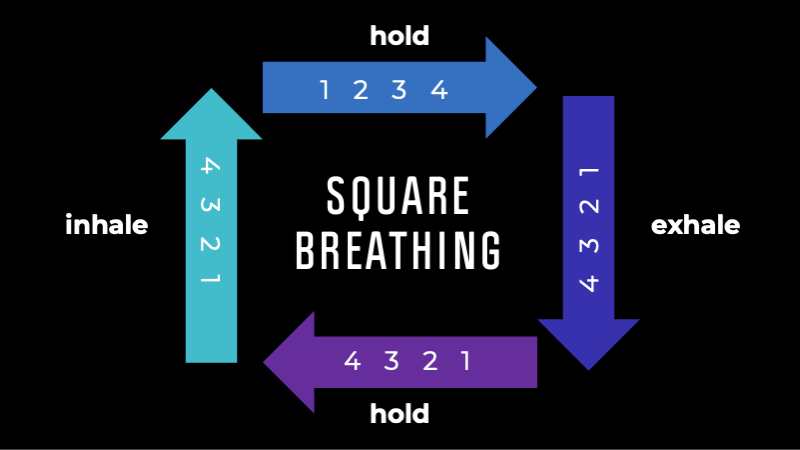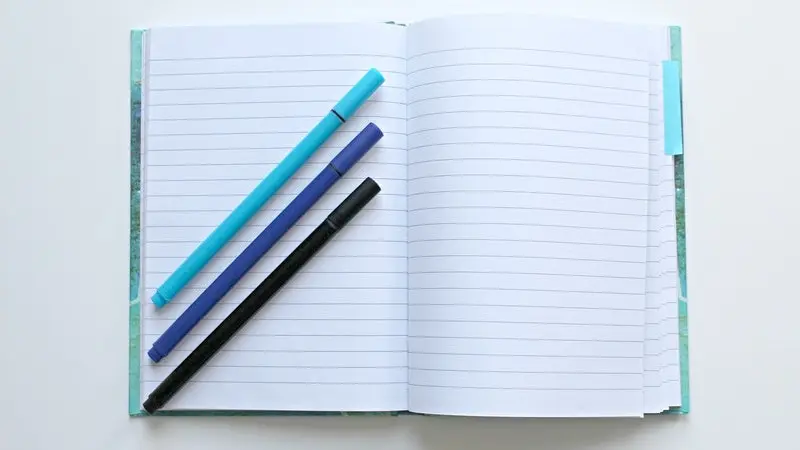We've all been there - eyes wide open at 3 am wondering how on earth we can get back to sleep. Getting back to sleep in the middle of the night can be difficult. If you've ever been in this predicament, you'll know the effect this will have on your mood, every level, and brain function later in the day. In this article, we'll look at several ways to help you fall back asleep when you wake up too early.
More...
While not necessarily a sleep disorder, difficulty getting back to sleep when you wake up in the middle of the night can be fairly common. If it happens to you regularly you may want to consider a visit to your doctor, just to check nothing is going on behind the scenes. After all, some underlying medical conditions can result in restless nights and disturbed sleep.
Assuming your GP has given you the all-clear, let's look at some other causes of sleeplessness:
- Stress
- Worry
- Irregular habits and routine
- Poor sleep hygiene
Are you struggling to fall back asleep due to stress?
Often, when we're dealing with a difficult situation, we'll know what is stressing us out.
Ideally, we want to reframe our thoughts (and our actions) when faced with this kind of stress.
We know it isn't possible to control what happens in our lives and the circumstances around us. However, we can control how we react and respond to those events.
Accepting stress and perceiving it more helpfully and pragmatically is a great first step in dealing with it.
So if you're struggling with getting back to sleep in the middle of the night, tackle stress.
Managing stress to help you get back to sleep after waking up too early
Meditation is scientifically proven to relieve stress.
While there are many ways to meditate, apps can be helpful for most people. For example, this 2018 study into a mindful smartphone app shows benefits in just 10 days. Furthermore, participants reported further reductions in stress after 30 days of use.
Meditation practice focuses us to retrain our thought patterns and observe our actions and responses. As a result, we become less stressed by situations and circumstances.
We can train our minds to become less reactive to stressful situations and achieve a more open and mindful response. That way, we can cope with life's stressful situations more easily and healthily.
What to do if you're feeling stressed and wake up too early
Try meditation to help calm your busy mind. You may even find a restored sense of peace and balance.
Getting back to sleep in the middle of the night
You might notice a pattern. As a general rule, it's a busy mind that keeps us awake and makes us feel stressed.
However, there are ways and practical steps you can take to help put your mind at rest. Calm those racing thoughts and fall back asleep the next time you lie awake in the middle of the night.
Here are 7 tips you can try to help you fall back asleep after waking up too early.
1. Avoid looking at the clock and checking the time
It's tempting to keep peeking at the time. You want to know how much sleep you can fit in before your alarm goes off.
After all, you'll get frustrated from starting at the ceiling or bouncing from one body position to the next.
However, you must fight the urge to check your clock if you can't sleep in the middle of the night.
Think about it. Watching the minutes pass only heightens your awareness of not sleeping. It fires up your brain, leading to stress about not being asleep.
What happens when your mind becomes busy and restless? You guessed it - falling back asleep in the middle of the night becomes that much harder.
So, turn your alarm clock to face the wall. Make sure your phone is out of arms' reach. Better yet, keep your phone at the other end of the room.
2. Next time you wake up too early, fall back asleep with a simple relaxation exercise
Relaxation exercises come in many shapes and forms.
Perhaps my favourite is simple progressive body relaxation. I often use this at the end of my Stretch and Strength exercise classes, as well as during dedicated guided meditation sessions.
Progressive Body Relaxation Instructions
Essentially, you're going to work your way up your body relaxing each body part as you go.
Start by concentrating on your toes, tensing them for a few seconds before letting them relax again.
Next, move on up to your ankles, calves, knees, thighs, etc. Even better, do one leg up to the hip and then start with the other. Similarly, start with one hand at the fingertips up to the shoulder then move to the other side.
It can be even more helpful to pay particular attention to specific areas of your body that tend to hold tension. For many people, those could be hips, lower back, neck and shoulders and jaw.
You may well find you're fast asleep before you even get up towards your head!
Breathing exercises to help calm your mind and relax your body
the 4-7-8 breathing method
Much has been written about this form of breathing exercise. It works to sedate your nervous system, helping you drift off back to sleep.
Essentially, we're slowing down our breathing which in turn slows our heart rhythm. As a result, our bodies and mind become more relaxed.
Repeat this process 3 more times, so you have completed a total of 4 cycles.
the 'square breathing' relaxation technique
Perhaps my personal favourite, this breathing technique is much simpler. The counts for each stage of your breathing are the same, and we set up a smooth, rhythmical pattern for our mind and body.
You can repeat this cycle as many times as you require.

Square breathing is a simple and effective relaxation tool
A general note about breathing exercises and relaxation techniques
If you find that the counting and sequences get too complicated, don't worry. Any type of deep, slow, rhythmical breathing will have a calming effect on your brain and body.
What's most important is that you keep your body (especially your hands) still and comfortable.
READ ALSO: Mindful breathing
3. If you wake up too early, distract a busy mind with a visualization exercise
The mind can be a funny thing. You'll probably find the more you attempt to make yourself fall asleep, the more awake you'll become.
Instead, think about something different.
Counting sheep may be a cliche, but it can work. Perhaps you might be more suited to picture yourself on a deserted tropical beach.
Alternatively, imagining a walk through nature might be more your cup of tea. 'Hear' the birds chirping and the leaves of trees rustling in the breeze. See the reflections of the stream flowing nearby and the water glistening and dancing on its merry way. Feel the lush grass under your feet and in between your toes.

Visualisation exercises can promote relaxation and help calm a busy mind
No matter the method, the effect is the same.
Essentially, you're getting your mind off the problem of not being asleep. Diverting your attention to something purposeful can help your natural sleeping pattern restore itself.
4. If you're awake in the middle of the night, try a sleep cast to help you fall back asleep
Sleep casts are a specific type of podcast.
They work along the same lines of visualisation detailed above, except your imagination is given a helping hand. A soothing voice narrates your journey, helping you drift off back to sleep.
Try searching for sleep casts for a range of options to suit your needs.
5. Write your worries down on paper
In the middle of the night, we often can't sleep because our minds aren't distracted as they are during the day. The lack of distraction can cause us to focus relentlessly on our troubles and worries.
It's a good idea to get into the habit of keeping a notepad and pen on your bedside table.

Keep a notepad and pen on your bedside table to write your thoughts and worries down in
The act of writing down and committing your thoughts to paper frees up your mind from revisiting them over and over.
You'll find you are better able to let things go and clear your head. A note of caution though - make sure to keep the lights dim, or better yet use a nightlight. Turning on bright lights will fire up your brain and disrupt your natural body clock.
6. Listening to music may help you fall back asleep the next time you wake up too early
I'm sure you're already aware of the relaxing and soothing effect music can have on your mind.
From a physiological viewpoint, music can have a direct effect on your parasympathetic nervous system. This is the branch of your nervous system that deals with your 'rest and digest' response.
While music is obviously a personal preference, you want to go for something you know and enjoy.
That being said, the goal is relaxation so you don't want something that's going to get you all hyped up.
Research indicates that music of somewhere between 60 and 80 beats per minute is ideal. Even better, classical music seems to have a more profound effect. If jazz is more your thing, that'll work too.
If you can, incorporate relaxing music into your nightly bedtime routine. Stick with it and you can build on the positive sleep effects each night. You'll improve your sleep hygiene and help set in place a routine for your mind and circadian rhythms.
7. If you wake up too early, try actually getting out of bed
It may seem counterintuitive, but lots of sleep experts suggest getting up and out of your bed if you've been away for 15 minutes or more.
Remember, that's just a best guess since you haven't checked your watch - see point number 1 above.
Lying in bed, feeling frustrated can lead to a disruptive pattern. Your brain can begin to associate your bed with those restless feelings.
Where possible, go to another room and perform some other relaxing activity. Perhaps read a book or listen to some music. You may find a warm bath or shower might help t00 - the water can help relax your muscles. Ensure your bedroom is cool enough so that when you go back in there, the temperature drop can stimulate feelings of drowsiness.
How to fall back asleep after waking up too early
Above all else, don't panic. Trying too hard to get back to sleep can often have the opposite effect.
On the whole, many people who wake up in the middle of the night don't actually have a big of a problem sleeping as they think they do.
The perception of lying awake can make it feel we have had next to no sleep come morning. In fact, we may still be getting more sleep than we think.
Instead of dwelling on feelings of tiredness and restless sleep, flip your thoughts around.
When you wake up in the morning, make your first thought "What a great sleep!"
Do this regardless of how many hours you actually got. You may well be surprised at the effect on your thought patterns and energy levels over the day.
READ ALSO: Sleep Fast – How To Get A Good Night’s Sleep

